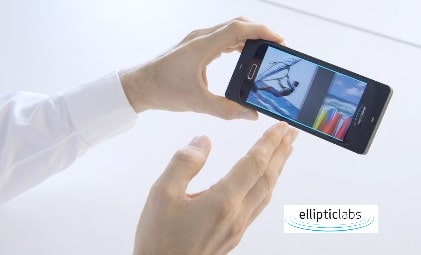BEIJING, CHINA — Chinese smartphone maker Xiaomi announced this week that its latest phone, the MIX, will be the first to incorporate ultrasound software for proximity detection. By replacing the phone’s hardware proximity sensor with ultrasound software, the phone’s speaker can become “completely invisible” and allow the entire surface of the screen to be functional — all the way to the top edge of the phone.
Until now, smartphones have included an optical infrared hardware proximity sensor to turn off the screen and disable the touch functionality. These sensors are required to ensure that a user’s ear or cheek doesn’t accidentally hang up the phone or trigger some other action during a call.
The new ultrasound proximity software incorporated into Xiaomi’s latest handset was developed by Elliptic Labs and is based on their BEAUTY software platform.
How Does the Technology Work?
Using the speakers located on a smartphone or tablet, ultrasound signals are sent through the air, bounce against your hand/object/head and are then recorded by device’s microphones. This allows the software to recognize your hand gestures and use them to move objects on a screen.
According to the company, the active interaction area is 180 degrees around the device, and up to several meters from the device.
Xiaomi, a company that sold more than 70 million smartphones last year, will primarily be selling their new MIX phone within the Asian market.
“We are thrilled to have our ultrasound proximity software featured in the new smartphone from world leader Xiaomi. Elliptic Labs is the only ultrasound proximity feature vendor designed into a tier-1 mobile handset. This is a significant validation of our Elliptic Labs’ value proposition and we are confident this will pave the way for additional design wins for our innovative ultrasound proximity product in the coming quarters.”
–Laila Danielsen, CEO of Elliptic Labs







